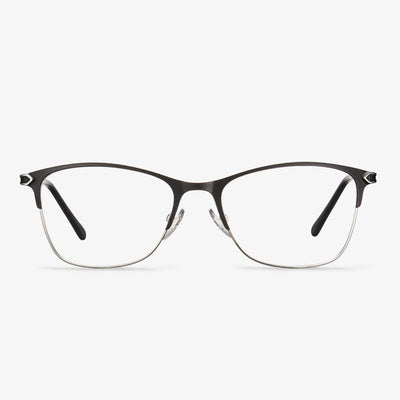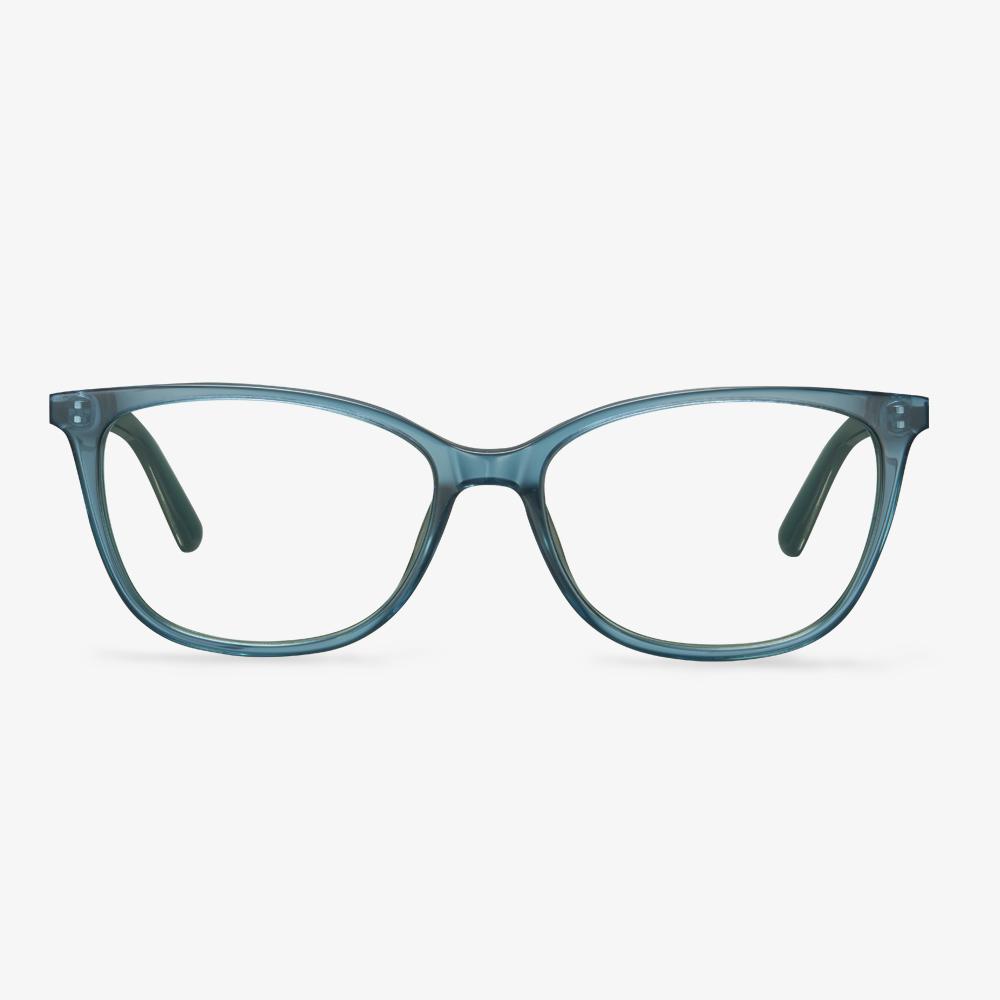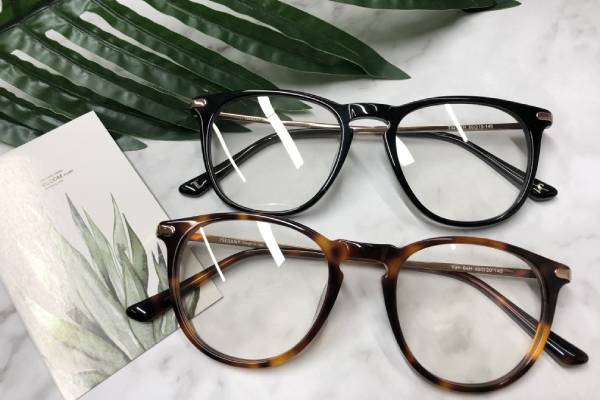Choose cost-effective lenses.
People who have high degrees choose the lens with a high refractive index like 1.60. So that the child's nose will not be compressed, which is the concern of most parents. Children grow faster, and the glasses replacement cycle is short. Adults should choose better quality lenses when choosing lenses, because a pair of glasses can be used for years, even in the situation when the frames are badly distorted and the lenses turn yellow. Zeiss A series lenses are cost-effective, suitable for people who are short of money and want quality. Nikon lens quality is very good, the film, wear, and sharpness are excellent. The disadvantage is that it is expensive, and the price gradient is quite large. The price scope is a bit wide, with two different refractive indexes.
How do bifocal reading glasses work?
Bifocal reading glasses have two different lenses on the same lens. The top of the lens is your normal distance prescription, while the bottom is for close-up viewings, like reading. The two lenses allow you to alternate between them by moving your eyes up and down as needed. A bifocal lens is a type of lens that has two different areas of vision: one for close range and one for long-range. Typically, the upper section covers remote vision and the lower section covers reading. With a traditional bifocal lens, you can see the difference between the two lenses because the lower curve is a little different.
What is a titanium glasses frame?
Titanium is a metal that has long been used in aerospace, and even in cutting-edge defense because it is so strong and lightweight. Chemically stable, the material is widely used in artificial joints. One thing to emphasize, the titanium welding process is very demanding. The production cost of titanium and titanium alloy glasses is high, and the process has special high requirements in cutting, stamping, welding, and electroplating (for example, welding must be completed in a vacuum), so the price is relatively expensive.
Does blue light cause damage to the eyes?
Businesses often associate blue light with mobile phones and computers that everyone frequently touches. There are also many terrible explanations about blue light on the Internet, ranging from causing damage to the eyes to causing cancer. Therefore, in recent years, mass media and academic circles have caused heated discussions about the possible impact of blue light on eye health.
It is believed that the reason why blue light harms the eyes is that blue light is not like ultraviolet light which is absorbed by the cornea and lens so that it cannot reach the retina. Blue light can reach the retina through the refractive medium of the eye, and over time it will cause the aging and functional degradation of the retina. But in fact, the eyes have many protection mechanisms in the process of evolution, such as squinting, pupil contraction, lutein contained in the macula of the retina, the anti-oxidant repair mechanism of the retina, etc., which can protect our eyes from the damage of blue light. Also, after scientific testing, the blue light emitted by electronic products is a few percent of the intensity of blue light in natural light, which means that as long as the electronic products are not used continuously every day (for example, more than 8 hours a day), blue light will not be causes obvious damage to the eyes.
Eyeglass pinches your nose.
Not only can a pair of glasses that pinch your nose be uncomfortable, but chronic stress can also lead to headaches or migraines. How you solve this problem depends on your frame material. If you're wearing a metal frame, just use your thumb to widen the plastic nose pad until the frame fits comfortably. If wearing plastic frames, after soaking the glasses arm in warm water for 30 to 60 seconds, gently press the glasses arm outward to make the glasses more comfortable. If your glasses continue to clamp your nose after adjustment, seek help from a professional optician.
1.67 vs 1.74 High Index Lenses: What Are Their Differences?
In this section, we will show you the differences between 1.67 high index lenses and 1.74 high indexes.
- 74 high index lenses are thinner and lighter than 1.67 high index lenses.
- 74 high index lenses are expensive than the 1.67 high index lenses.
- Both 1.67 and 1.74 high index lenses can reduce the eye distortion caused by strong prescriptions, 1.74 high index lenses perform better than the 1.67 high index lenses.
- As for the color of lens, both come in clear, gray-tinted and brown-tinted, but only 1.67 high index lenses come in Transition brown or gray.
- 74 high index lenses are better for those looking for the thinnest lens possible. So, patients with extremely strong prescriptions chooses this.
- 67 high index lenses are better for those looking to save money or those who do not have extremely high prescriptions. They are also the only choice if you are looking to get Transitions.
From the above information, you can find the main differences between these two lenses are price, thickness, weight, color options and general appearance. Most people who choose 1.67 high index lenses generally either do not have an extremely high prescription or are shopping on a budget. 1.74 high index lenses, on the other hand, are the thinnest and lightest plastic lenses currently in existence.
How to Get Used to Progressive Lenses?
In this section, we will show you how to get used to progressive lenses.
- Always wear them. If you try and ease your way in by changing them with your previous glasses, it will take a longer time to adjust.
- You need to find and use new areas in your lenses instead of using whatever space is most convenient.
- Make sure you have a comfortable frame that is adjusted for your face.
- Make sure that the optician fits the lens in the right way with the right equipment.
So, if you have difficulty getting used to the progressive lenses, try the above ways.











































